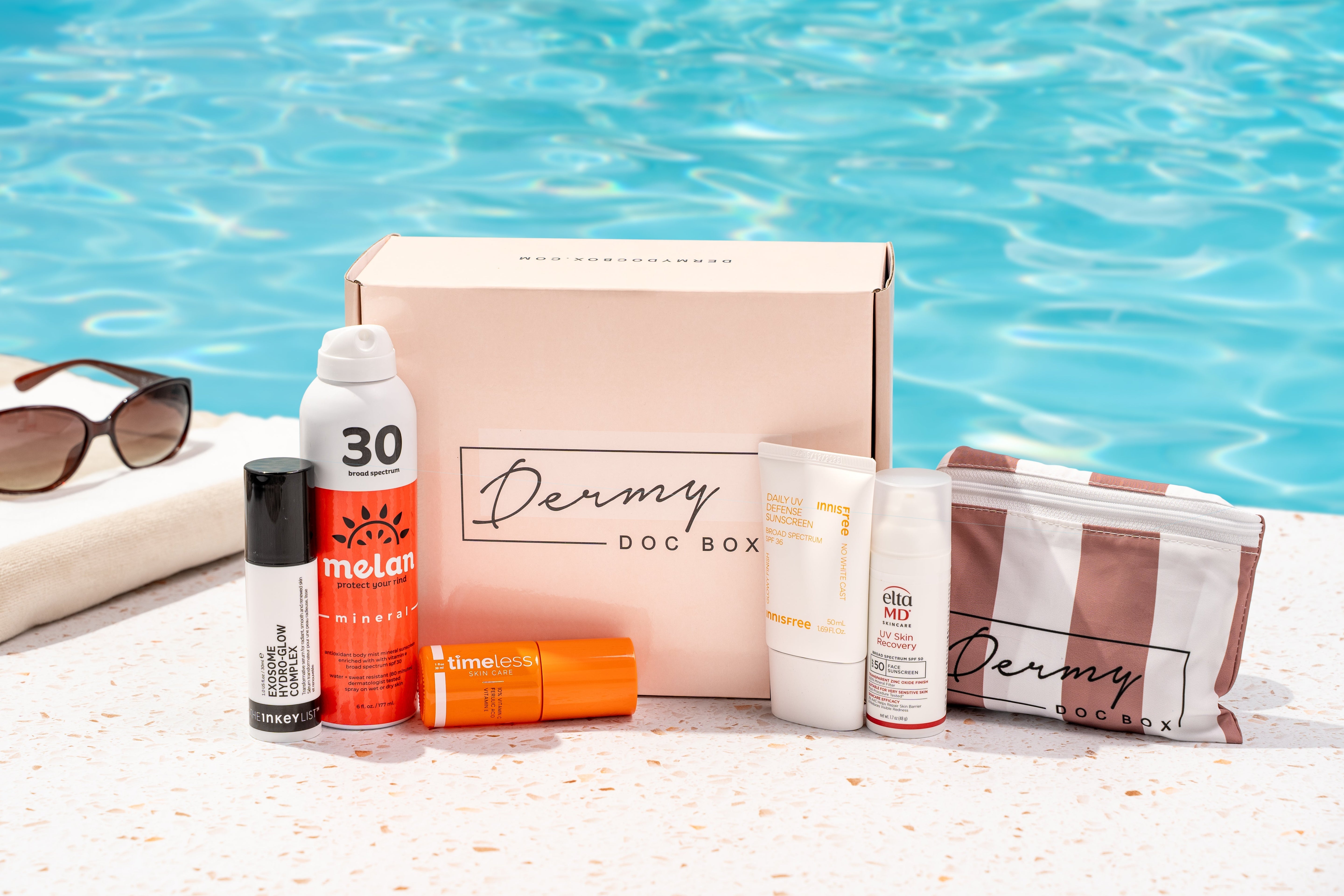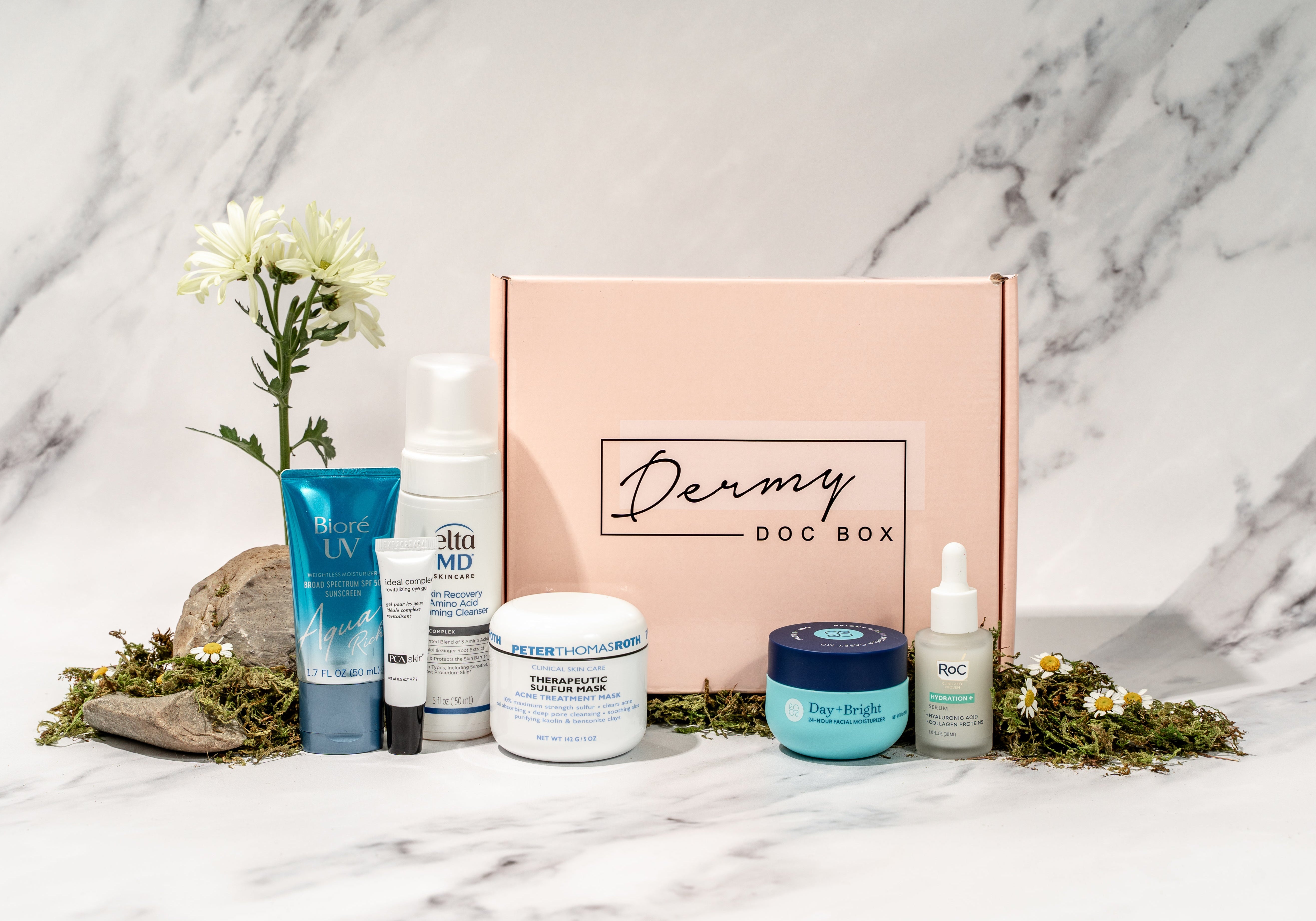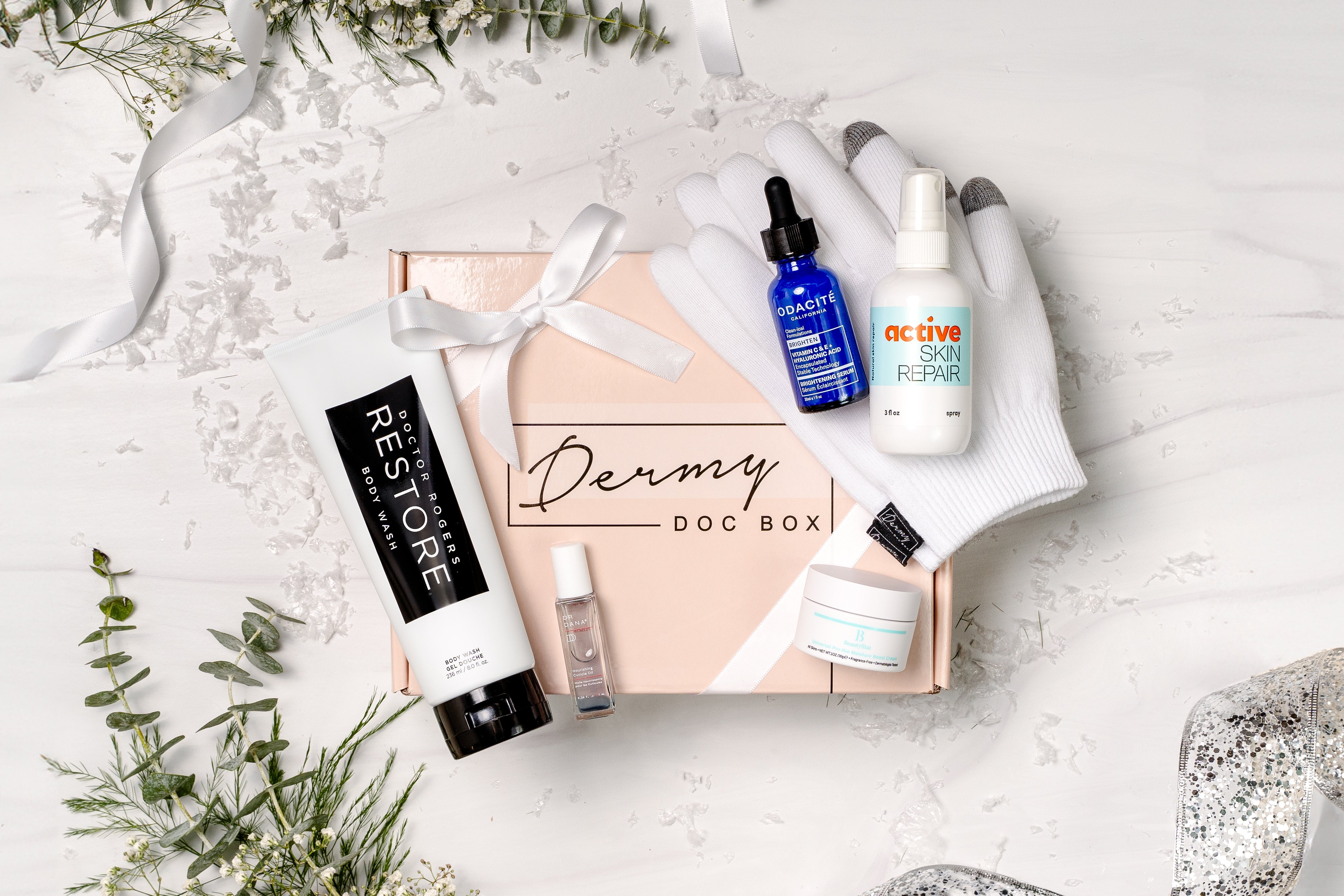We've all been there. A little too much summer sun snuck its way to our skin. There are a variety of ways you can lighten sunspots. I've listed my favorite 6 below.

#1 Wear your sunscreen
This one should be no surprise! Sunscreen is one of the most important products you can use to protect your skin from sun damage. Sunscreen should be used on a DAILY basis, even in winter and during cloudy weather, because UV rays still penetrate through clouds and windows!
Sunscreens come in many forms: lotions, creams, gels, powders and sprays are all common types. The best type of sunscreen for you will depend on your skin type, but it's generally recommended that you choose an SPF 30+ product unless there's a high risk of getting burned (like at the beach). Be sure your sunscreen is also labeled “broad spectrum”, which ensures it protects against both UVA and UVB rays.
If you’re investing in skincare, in office procedures or treatments but not wearing sunscreen on a daily basis, you’re flushing your money and efforts down the toilet! Don’t make this mistake!
Not sure where to start or need a full refresh of products for the summer? Order our Summer Box today to get a variety of sunscreens to try, curated by yours truly!
#2 Exfoliate to remove dead layers of skin
Exfoliating is a crucial part of any skincare routine. It removes dead skin cells and smooths out the surface of your face, making it easier for skincare actives, like serums or moisturizers to penetrate. If you don't exfoliate regularly, the sun spots on your face will be harder to treat because they're embedded in an uneven surface of dead skin cells that haven't been sloughed off yet.
There are two main types of exfoliation: physical and chemical. Physical exfoliants include brushes, sponges or scrubs that gently buff away dead skin cells. The downside? Sometimes physical exfoliants can be too harsh for those with sensitive skin, so approach with caution. Chemical exfoliants use acids such as glycolic acid or salicylic acid--a common ingredient in over-the-counter acne treatments--to dissolve away dead cells at a deeper level within the pores. For best results with either method, start by exfoliating once a week. Over-exfoliation can damage the skin barrier and make the skin more susceptible to breakouts or irritation.
#3 Add a vitamin C and retinol to your routine
Vitamin C is an antioxidant that helps protect your skin from environmental damage. Vitamin C can help reduce the appearance of dark spots by working to fight free radicals in our environment from dulling our skin. Vitamin C can also boost the efficacy of your sunscreen, making it work better, which is why I like to apply it in the morning, before applying sunscreen.
Retinol is a vitamin A derivative that works to improve skin texture by increasing cell turnover rate so that dead cells are removed more quickly than usual–effectively improving the appearance of sun spots and other forms of hyperpigmentation!. It also has anti-aging properties because it stimulates collagen production within the dermis layer of our skin--which means fewer wrinkles!

#4 Laser treatments
In office laser treatments work by targeting the pigment in your skin and destroying it, causing the pigmented area to gradually fade away. Depending on the type of laser, some may treat both sun spots as well as other causes of hyperpigmentation. Importantly though, lasers can come with risks such as burns or worsening of dark spots, so be sure to see a board certified dermatologist to determine which treatment is right for you and safe for your skin type and tone.

#5 Chemical peels
Chemical peels are often used to treat signs of aging, including sun damage. As a dermatologist, I use a variety of ingredients to gradually and safely peel the skin and reveal smoother, brighter skin beneath it. Chemical peels done in the office are usually at a higher percentage than what you might see over the counter. Some chemical peels your dermatologist may suggest for you could include: Jessner’s solution, TCA peels, glycolic acid, salicylic acid, kojic acid, etc. Be mindful of purchasing chemical peels online, as they carry a large risk of chemical burns and worsening pigmentation. These strong peels should only be done with a professional!

#6 Prescription based topicals
Prescription based topicals are a great option for those who want to lighten sun spots and hyperpigmentation have tried over the counter products and are still struggling. These products are available in different strengths, so it's important to consult your dermatologist before using them. Some prescription based topicals your doctor may mention could include hydroquinone, tretinoin, azelaic acid, kojic acid or mixtures of the above.
In summary, make sure your skincare routine is equipped with sunscreen, retinol and vitamin C to maximize your ability to lighten and prevent sun spots. If these steps fail, it’s time to see a dermatologist for additional options. Are you subscribed to Dermy Doc Box? Don’t miss out on an array of sunscreen options in our Summer box!









